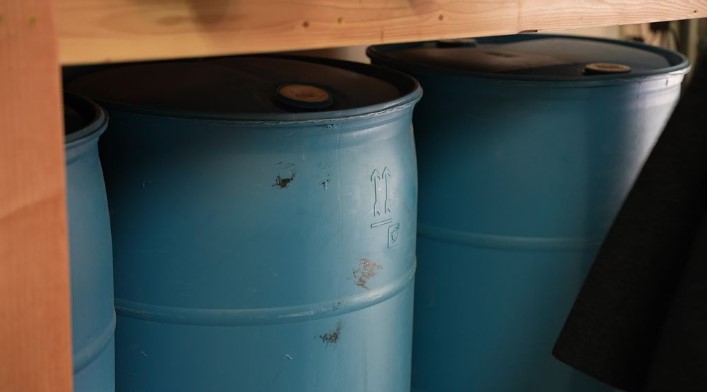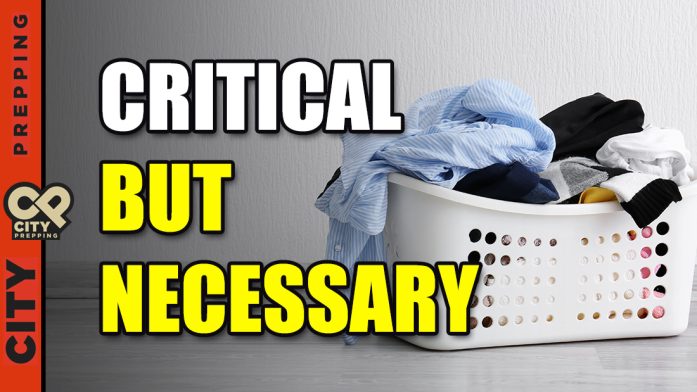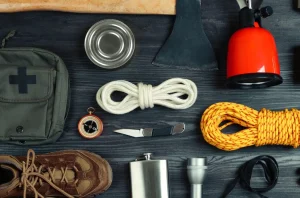It’s very important that inflation is brought into check by poor people losing their jobs. Not rich people losing their deposits. – Any_Perspective_577
Silvergate Capital announced that it would wind down operations and liquidate its bank. Signature and Silicon Valley Bank were seized by Federal Regulators, marking the second-largest bank failure since the Great Recession. The credit rating firm Moody’s Investor Services downgraded the entire U.S. banking sector and warned about the future need to downgrade six more American banks. Credit Suisse, the Swiss banking giant, acknowledges it has found “material weaknesses” in its financial reporting. Its largest investor has signaled it would not be rushing forward with an infusion of cash to support the banking giant. It’s time we faced the possibility that the banking system could completely collapse globally because these are not isolated failings. Banks are intrinsically tied to one another. They buy each other’s loans, invest in each other, hold accounts with each other, and partner in all aspects of our financial system, often co-holding loans for businesses and property worldwide. So, what would it look like if the banking system collapses? This is what you need to know now…
CAN IT BE CONTAINED?
 The first effort by investors, bankers, financial institutions, federal reserves, and governments worldwide aims to contain the spread and calm the people. If people panic and start withdrawing their money to safely store it under their mattresses, that paper currency doesn’t exist. The dollar you might have deposited in one bank is leveraged or loaned to another, which then lent it to yet another, which then used it as collateral for more than one loan. It’s spread all over the place and takes on many forms far greater than the sum total of its value.
The first effort by investors, bankers, financial institutions, federal reserves, and governments worldwide aims to contain the spread and calm the people. If people panic and start withdrawing their money to safely store it under their mattresses, that paper currency doesn’t exist. The dollar you might have deposited in one bank is leveraged or loaned to another, which then lent it to yet another, which then used it as collateral for more than one loan. It’s spread all over the place and takes on many forms far greater than the sum total of its value.
In the case of Silicon Valley Bank, the Fed rushed in to assure that all depositors would be “made whole”- a term to mean that depositors would receive all of their deposited money back. Investors in the bank’s stock were wiped out, as they took a knowing risk by buying the stock. Some of those investors are not just individuals. They are financial institutions that hold and manage portfolios of pension plans, 401ks, IRAs, mutual funds, and other retirement accounts. Anyone invested in an index fund may hold Silicon Valley Bank to a small degree. Top shareholders in Silicon Valley Bank include Vanguard (11%) and BlackRock (8%) in their various index funds and ETFs. Other money managers and pension funds with exposure include State Street Global Advisors, J.P. Morgan, and Invesco. Swedish pension fund Alecta held 4.45% of total outstanding shares or about $600 million at year-end. Many will check their balances in their retirement accounts in the coming weeks only to find out that their balances have considerably dropped.
Other banks and investment firms will fail, so can it be contained? At least some banks will profit to the tune of a $100 million or more, having banked on Silicon Valley Banks’ demise, but let’s assume for a moment that the spread of failures cannot be contained. What’s next?
HOW IT ALL FAILS
 First, as we mentioned, people’s retirement accounts take a significant hit. The average 401(k) balance was $141,542 in 2021, up 10% from 2020. That’s not much to retire on, to begin with, and it’s even less when you factor in inflation and the rest of a person’s “golden years.” If a person just lives ten years beyond their retirement age of 65, they only have a little less than $1,200 a month to make ends meet. With a significant drop in their retirement portfolio, dreams of golden years and not commuting and grinding out work daily are put on hold. People have to work longer and hope economic conditions improve.
First, as we mentioned, people’s retirement accounts take a significant hit. The average 401(k) balance was $141,542 in 2021, up 10% from 2020. That’s not much to retire on, to begin with, and it’s even less when you factor in inflation and the rest of a person’s “golden years.” If a person just lives ten years beyond their retirement age of 65, they only have a little less than $1,200 a month to make ends meet. With a significant drop in their retirement portfolio, dreams of golden years and not commuting and grinding out work daily are put on hold. People have to work longer and hope economic conditions improve.
Unfortunately, bank failings of this level cause some companies to be unable to make payroll, invest in new projects to maintain growth acceleration, or force companies to abandon projects they have been working on to sustain growth and revenue. That means they often seek to downsize their labor force. Older workers are often the first to be let go because younger workers can be forced to work harder for less pay. However, younger workers are reluctant to enter a workforce where they know they will struggle even to keep their heads above water.
Any failing pension plans get transferred to The Pension Benefit Guaranty Corporation (PBGC), a United States federally chartered corporation created by the Employee Retirement Income Security Act of 1974. Those downsized workers enter unemployment status and collect unemployment insurance. Those holders of failed equities write off their losses on their corporate and individual taxes to offset their gains. All of it gets transferred to the balance sheets of the government, and still, not one profit-seeking, risk-taking banker ever spends a day in court or jail. All of these result in massive pressures on the government, which is actively involved in trying to contain inflation, spending to encourage economic growth, and loaning money to banks to promote their growth.
The pressure is enough to erode global confidence in the almighty dollar. Countries begin to seek transactions in other currencies or securities even as they struggle to limit their exposure to failing banks. After all, these bank failings are not a uniquely American problem, they have branches and roots in financial institutions worldwide, and several other countries are already reeling from these implosions. Value everywhere is evaporating. Before everything is said and done, several more banks will fail or shed significant chunks of their value. Some countries may suffer a recession or depression. Even if it doesn’t get that extreme, one thing is for sure; the global economy freezes up as people assess their losses and hold on to whatever resources they have left.
WHAT COULD BE NEXT?
 With financial strains on countries so great, either the war in Ukraine loses support, because why would countries send money and resources there that are needed at home, or it escalates. A significant escalation puts countries in a wartime posture, and there is lots of money to be made and jobs to be had in the defense industry. Any cursory history study will reveal how previous World Wars spurned economic growth, innovation, and a post-war explosion of growth. In some ways, wars are a great big reset and reboot button for the victorious countries.
With financial strains on countries so great, either the war in Ukraine loses support, because why would countries send money and resources there that are needed at home, or it escalates. A significant escalation puts countries in a wartime posture, and there is lots of money to be made and jobs to be had in the defense industry. Any cursory history study will reveal how previous World Wars spurned economic growth, innovation, and a post-war explosion of growth. In some ways, wars are a great big reset and reboot button for the victorious countries.
Most manufacturing, however, will likely slow to a crawl. With the dollar buying less, companies produce less. Even farmers are reluctant to gamble on the high price of seed or feed that they cannot cultivate into a profit later. They, too, will seek subsidies and assistance from the government even as they produce less food.
At home, even if you managed not to be a part of the ranks of the unemployed and you managed to not lose your shirt in your retirement portfolio or your bank didn’t fail and lock up or lose your life savings, you will still suffer the consequence. Your dollar will be worth less or worthless. Banks and financial institutions will pass on their losses to you through higher fees and tighter credit requirements. If you have any form of variable rate loan, that is a loan with a floating interest rate, expect that interest rate to go up. Even if you don’t have any personal exposure, the company or business you work for might. Their ability to transact or secure the resources and revenue they need to operate can cease to exist. That could force you out of a job.
In this climate of decline, you can expect inflation to soar to all-new heights. Your dollar buys less, and the cost of everything skyrockets. Suddenly, you can’t get the same amount of food at the grocery store, can’t afford the gas you need to commute, or the luxury expense of childcare while you work. You won’t be able to put those things on credit and hope for a better day, either, because banks will be tightening credit limits and raising the annual percentage rates in the hope of maintaining operations. You or your neighbor is left unable to afford basic necessities, pay rent or a mortgage, or sell assets because who is buying in this climate? The wave of repossessions and foreclosures follows.
The whole world transacts in the US dollar. When it fails, it is catastrophic for the world. Some governments will fail as citizens press their government for solutions or help. Some will restructure away from capitalist ideas. Everywhere, and all at once, production seizes up, and trade routes slow or stop. If your municipality depended upon parts like wires, transformers, pumps, and more from China to keep its water or power plants operational, those parts are no longer available. Failure to maintain these systems can result in them failing from lack of maintenance or pushed into failure from natural disasters or strain.
WHAT CAN YOU DO?
 We know that this isn’t a pretty picture we paint here. We are trying to show you how bad this can get if it isn’t contained, and as bad as this all is, we still haven’t scratched the surface. The Great Depression, after all, had some pretty fundamental causes behind it, and that was at a time when global economies and banking systems weren’t nearly as intricately webbed together as they are now. That was at a time when people locally sourced their resources because these massive supply lines that bring you asparagus from Chile and aluminum from China didn’t exist.
We know that this isn’t a pretty picture we paint here. We are trying to show you how bad this can get if it isn’t contained, and as bad as this all is, we still haven’t scratched the surface. The Great Depression, after all, had some pretty fundamental causes behind it, and that was at a time when global economies and banking systems weren’t nearly as intricately webbed together as they are now. That was at a time when people locally sourced their resources because these massive supply lines that bring you asparagus from Chile and aluminum from China didn’t exist.
First, you must accept that you won’t be able to buy your way out of this crisis, regardless of what you have saved or set aside. Liquidating your 401k to live off it for as long as possible will not work. You have to turn to locally sourcing what you need to survive. You need to learn to live on less with forced frugality. At some point, you may be responsible for your own food, water, and whatever energy you need. You may need to postpone treatment for any medical conditions that arise. You will need to become as independent and self-sufficient as possible.
For years people assumed that they would just transact in gold, silver, or platinum if the dollar ever failed, and for years we have been telling people how wrong that thinking really is. It assumes that other economies won’t be affected. It assumes you can somehow trade an ounce of metal for a loaf of bread. Both the dollar and precious metals only have perceived value. You won’t be able to live off either of them in a more significant collapse. What will be of real value are your skills, resources, knowledge, and self-sufficiency. You might be able to trade that one silver Morgan Dollar you have saved all this time for a basket of apples. In today’s money, you just traded about $100 for a basket of apples. You would have been far better off having planted an apple tree that would have provided you with multiple baskets of apples now.
To be clear, we are not going on record predicting a global collapse and the death of the US Dollar, but we are also not ruling out some challenging times ahead of us. Either governments and financial institutions will be able to contain these losses, or they won’t. When facing that reality, you can either sit on the sidelines with a wait-and-see mentality and be a victim of whatever fate befalls you, or you can begin to proactively take control of your life through prepping. You will be better positioned to survive the fallout if they don’t contain it. If they contain it, you will be more solid and better positioned because of your prepping activities.
We are not financial experts and don’t give financial advice, but we don’t have to be to see how badly this could swiftly turn. One of the ways you can insulate yourself is by educating yourself on this channel. The free Recession-Proof Guide you can download, and we’ll put a link to it below, can set you on a path to reduce expenses, become more frugal, and understand what you really need to survive. The free blogs on this site can also equip you with what you need to know to survive a catastrophic economic decline. The Great Depression playlist, for instance, has a dozen videos on everything from what you’ll need to books you should have to how to barter after the economy collapses. Please check out the playlist linked below.
Let’s hope for the best but prepare for the worst. Don’t assume it’s gone for good if this crisis is contained and averted. We have seen these types of situations occur again and again. They come back every few years or decades, and each new occurrence is worse than the one before. It’s not a matter of if it will occur. It is a matter of when. So, please take my advice and commit to your current efforts to prep or begin prepping now while there still is time.
As always, stay safe out there.
LINK
Surviving a Depression Playlist: https://www.youtube.com/playlist?list=PL5TAN1zJMd0fISN5QZ3azITREGcnYwsph
Download the Recession Proof Guide: https://cityprepping.tv/3PJwGM0 – start your preparedness journey: https://cityprepping.tv/3lbc0P9









